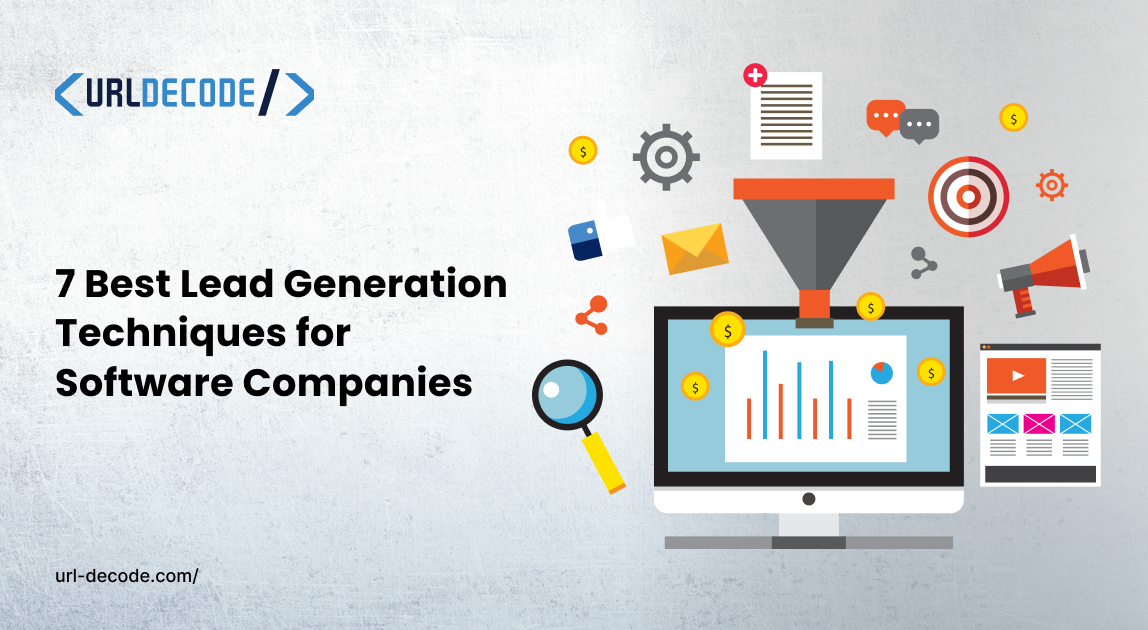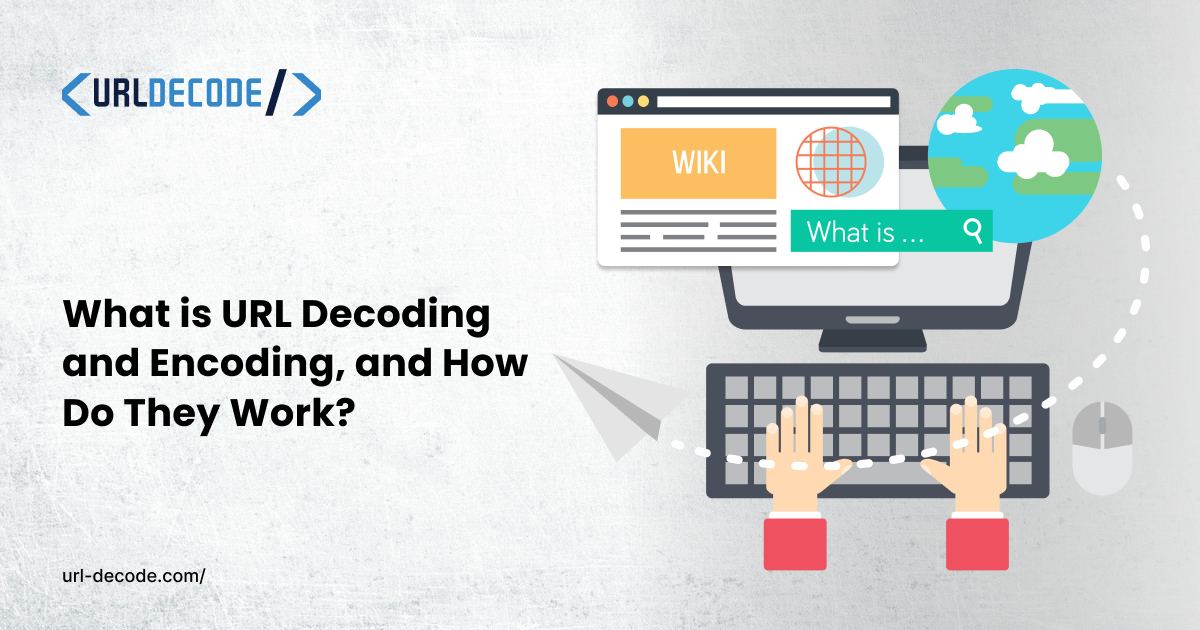7 Best Lead Generation Techniques for Software Companies

Lead generation refers to creating awareness of your brand/company registration among customers who can benefit from your products and services. Creating awareness leads to potential clients that end up converting and adding to your profits.
For software companies, these clients are usually other corporations. So, how can they spread that awareness and generate leads? To answer that question, we have compiled seven lead-generation techniques. Let’s check them out.
1. Search Engine Optimization (SEO)
Search engine optimization, or SEO, is the art of making your website rank high on the search engine results pages (SERPs). When your site ranks high, more people see it, and thus, more people visit it. For software companies targeting other businesses, applying proven B2B SEO strategies, such as creating service-focused pages around ecommerce software development, using saas video ads, or showcasing the expertise of a dedicated software development team, can further improve lead quality and long-term profitability. Then your website converts those leads, and you profit. Many businesses also choose to partner with a search engine optimization company to access professional expertise and accelerate results. Then your website converts those leads, and you profit.
So, how do you do SEO? Well, that’s a massive topic in and of itself. We are just going to give you the basics, and you can do the rest of the research as needed. That’s where SEO for Business Growth from Garage2Global comes in.
There are two parts of SEO: On-page SEO and off-page SEO.
On-page SEO encompasses all SEO activities that you do directly on your website. This includes things like:
- Technical SEO, i.e., optimizing meta tags, website structure, page loading speed, etc.
- UI and UX. Intuitive design and straightforward usability will improve the ranking on the SERPs.
- Content quality. The better your content, the higher your website will rank on the SERPs.
Off-page SEO encompasses all SEO activities that you do outside of your website. These include things like:
- Backlink generation. Backlinks are links from other websites to yours. The better the quality and relevance of the site sending the link, the better your web page ranks. Guest posting is a technique employed to generate backlinks. Exploring marketing sites for guest posts can help you identify high-quality opportunities that strengthen your backlink profile. SEO teams often use dedicated tools to find backlinks that competitors have earned, revealing gaps and opportunities for outreach. You can also explore insights from a recent link building survey to better understand which strategies are working in today’s SEO landscape. Working with a link building specialist can also ensure your backlink strategy follows best practices and delivers sustainable results.
- Business Directory listing. Having your business listed in directories like Google My Business lends authority to your software company’s website.
- Forum Participation. Forums where software issues relevant to your company are listed are great spots for interaction. By providing helpful and informative comments, you can build your brand authority, which search engines consider for SERP ranking.
You can do those things to make your website appear in the top search results for relevant queries.
2. Content Marketing
Content marketing is a great way to improve your website’s SERP ranking and your brand's exposure. So, what does content marketing entail?
In content marketing, you create informative and helpful content and publish it across various digital sources. For example,
- You can create a blog and publish blog posts every week or month.
- You can also create a YouTube channel and create tutorials and stuff.
- You can also write e-books and sell them.
The point is that you make content in any shape or form and make it available to the public. When prospective clients find your helpful content, they will trust your brand and be more likely to buy your services. Modern strategies also go beyond static content; interactive lead generation techniques, such as quizzes, calculators, and gated tools, engage prospects more actively and increase the chances of converting them into qualified leads.
Here’s what you can do to generate more leads with your content.
- Ensure that written content is easy to read. Do that by formatting it for skimming and using easy vocabulary. Try to maintain a reading grade of 7-8 in the Flesch-Kincaid reading test.
- Keep video content short and to the point. Do not waste time in unnecessary exposition, and definitely don’t go on a tangent.
- Keeping point 2 in mind, be sure to discuss everything required to get your point across, or at least provide a link to other sources where more details can be found.
- Maintain your content release cadence. Don’t publish new content haphazardly. Create a schedule and stick to it. You don’t have to maintain a stringent schedule, like one post/video per day. But whatever you decide, you must stick to it.
So, to summarize, consistent quality content will net you great results in lead generation.
3. Email Marketing
Email marketing is a digital marketing strategy that utilizes emails as a means of promoting your goods and services. Emails have a few advantages over other methods of digital marketing.
- You can use it to directly reach out to prospective clients
- It has the potential for hyper-personalization
- Can use emails to follow up on generated leads and work towards converting them.
These distinct advantages make them an amazing AI marketing tool. Here’s how you can use them to create leads for your software business.
- Send cold emails to other businesses that can benefit from your services, using reliable transactional email providers to ensure deliverability
- Send emails to individual customers who can benefit from your services. To do that, you can create email lists yourself, or you can buy one from a data broker.
- Be polite and to the point in your correspondence. People like it when you respect them and their time.
- Write a compelling subject line that makes the reader want to read your email.
- Add a call to action in your email content to ensure that the reader takes the desired action to become a lead. Including a digital business card in outreach helps prospects connect instantly and remember your brand.
- Don’t bombard clients with emails. Do not send more than one email per week.
Do all of that, and your email marketing will be a resounding success.
4. Social Media Marketing
Social media is a powerful force in the world of marketing. It can be used to reach all kinds of audiences in the world. As a software company, you should have a dedicated marketing team that can handle social media outreach and create new leads.
So, what does social media marketing entail? It entails the following.
- Researching the channels and pages where you are likely to get your audience.
- Creating posts and content to publish on social media sites to generate awareness, for example, using an auto-post tool can help you maintain a consistent schedule without manual effort.
- Interacting with your potential audience by commenting on their posts and engaging in intellectual discourse.
- Creating an authoritative presence in the social media space of your niche.
This approach makes your name well-known among people who have the potential to be your audience. It also makes your software company seem approachable. As a result, more people are willing to interact with your brand. That’s how you generate leads with social media marketing.
5. Affiliate Marketing
Affiliate marketing is a specific type of digital marketing where you use the authority and trust of another brand to bring customers to yours. In return, you provide some kind of monetary benefit to the brand whose trust and authority you are using.
In this kind of marketing, another brand will basically promote your product to their customer base. Any sales you get from their promotion net them a commission. So, the more sales they make, the more money they make, and you get new leads.
The best companies to approach for affiliate marketing are the ones whose business niche is adjacent to yours. That’s because it reduces the chances of stealing customers from each other. Adjacent businesses often have similar customers who need both of their services, so affiliate marketing ends up being profitable for both.
Software companies cover a broad range of niches. They can relate to marketing, security, consulting, manufacturing, and other services.
Depending on the niche, the adjacent businesses suitable for affiliate marketing are different. Here are some examples to help you understand better.
- A software company that creates websites for clients can use web hosting companies for affiliate marketing and vice versa.
- A software company that creates and sells HR software to other companies can use business consultant firms for affiliate marketing.
- SaaS companies can use other SaaS companies with overlapping customers for affiliate marketing.
Those are just some examples of good choices for partners in affiliate marketing.
6. UGC and Referrals
UGC stands for user-generated content. UGC refers to any content that a customer creates in relation to a company. The most common forms of UGC are reviews and testimonials.
These reviews can be posted on both your platforms and 3rd party ones. For example, your Google My Business profile will have reviews. Your social media pages may have reviews. Your own website can also host reviews. Then, there are websites like TrustPilot that are specifically made to get unbiased reviews.
These have a lot of power and can make or break your lead generation strategy. The problem with reviews and testimonials is that only the people who have had a bad experience will write them. It is very rare for a person who had a good experience to leave a glowing review on their own.
So, you have to coax people who are satisfied with your service to leave good reviews. This helps a lot when new prospective customers are researching your brand.
You can also create a referral program where you offer existing customers some benefits for referring new customers to your business. This is beneficial and effective because people are more likely to trust the word of their peers, friends, and family than some marketing content.
So, a collaboration program can bring in many new leads.
7. Collaborations With Businesses and Personalities
Business partnerships are quite good when it comes to generating leads. We briefly touched upon this topic in the affiliate marketing discussion, where we advised using adjacent businesses for affiliate marketing.
Well, it turns out that you can do a lot more with adjacent businesses other than affiliate marketing. For example:
- You can find a business whose services or products complement your own. Then, you can collaborate with them to sell your products/services in combination with theirs to give a complete package to their (and, by extension, yours) customers.
- You can do cross-promotions with each other. I.e., promote each other's services and products to your customer base. This gives each business new leads by tapping into a new customer base.
Similarly, big-name personalities and influencers in your niche can also help you increase your leads. You can collaborate with them, and they can use their platform and outreach to promote your software company. To maximize the impact, businesses often use tools like an auto dialer to connect with the new audience acquired through collaborations quickly. In return, you can sponsor their content or offer them a deal on your offerings. To ensure these new prospects are properly tracked and nurtured, a lead management CRM helps capture, organize, and follow up with collaboration-driven leads before opportunities slip through the cracks.
Also read:
Conclusion
So, there you have it: seven techniques for generating leads for software companies. These techniques encompass many parts of digital marketing, such as SEO, content, social media outreach, and emails. We also discussed other techniques, like collaborations with businesses and influencers, to expand your outreach to other types of customers.
However, the cornerstone of lead generation is providing great service. Good service means more customers will be happy with you and refer your company to their peers, which will net you more leads.
So, whether your company is B2B or B2C, you can expect good results with these techniques.




